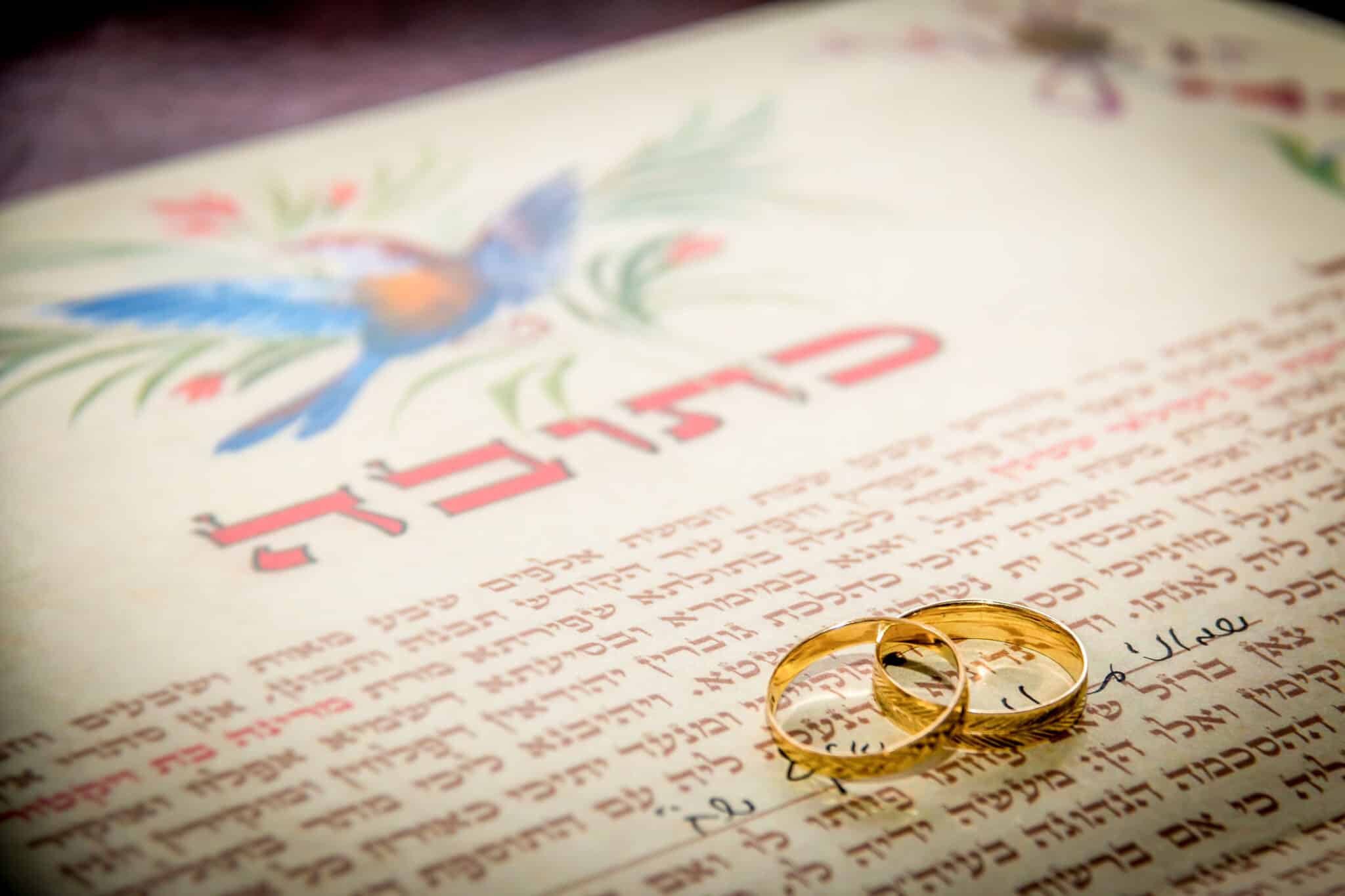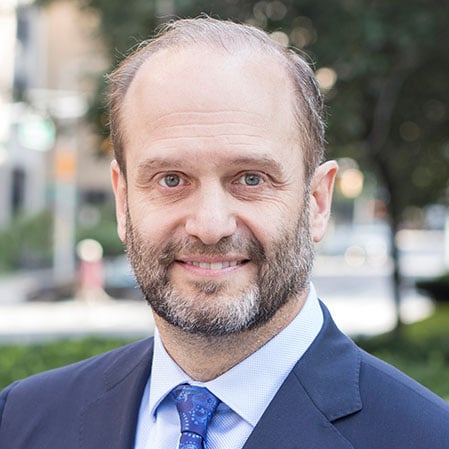 PowerSiege/Getty Images
PowerSiege/Getty Images It is a true declaration of love, written by one of the most eloquent rabbis of our generation. In an article published on the occasion of his 30th anniversary, Rabbi Jonathan Sacks describes the early years of his marriage:
Elaine and I were married young. She was 21, I was 22. At that time we had no idea what life would bring. As the Yiddish saying has it: the one thing that makes God laugh is seeing our plans for the future.
I had gone to university to study economics. I then changed to philosophy. For a while I toyed with the prospect of becoming a barrister…. It took several years before I heeded the inner voice calling me to the rabbinate. During those years, Elaine – a radiographer – was the breadwinner, and I the (not very good) housekeeper.
Our life has had its twists and turns, its unexpected blessings and crises. But looking back, I know that whatever I have done I could not have done alone, and I try to say so as often as I can.
Rabbi Sacks describes a “journey into the unknown” that many couples undertake; they start their marriage filled with hope, and then, their best-laid plans go awry. Suddenly, they are forced to improvise and reinvent their relationship. What keeps a couple like the Sackses together when their lives are turned upside down? Most people would simply guess: “love.” And that is part of the answer. But the actual answer is: “a commitment to love.”
Love expresses what you feel; commitment states what you promise to do. For a couple already in love, the need for commitment may even seem redundant; after all, isn’t love what drew them together in the first place? Yet the Torah emphasizes the importance of marriage. Maimonides writes that common law relationships were the norm prior to when the Torah was given; a couple simply moved in together and called themselves man and wife. What the Torah came to add was a ceremony of commitment, one that creates obligations for both partners. The Ketubah, which is read at every wedding ceremony, outlines the husband’s obligations of support, both during marriage and after divorce or death. It is terribly unromantic, an Aramaic legal document that envisions the worst at the very moment that the couple is dreaming of a beautiful life together. Yet that is the point of it. The Ketubah may be unsentimental, but it is also a powerful expression of unconditional commitment. And it is through the obligations of marriage that a true covenant is created and a lasting partnership is built.
Love and commitment approach relationships from different perspectives. Love is self-satisfied; it is so intoxicating, that every couple imagines they are destined for a life of “happily ever after.” In preparatory meetings before a wedding, I discuss with couples the various educational programs available to strengthen relationships; most of the time, my words are met with a distant look, as if what I am saying has no relevance to them. Indeed, the workmanlike ethos of intentional relationship building seems to violate the tender aesthetic of love, which considers itself to be the product of otherworldly inspiration.
Commitment, on the other hand, is insecure, unwilling to abandon the relationship to the muses of romance; it wants to ensure that the connection will remain even when passion proves elusive. It understands that the couple must constantly continue to build their relationship, and can’t leave their future to love alone.
This idea is highlighted by the verse: “When a man has taken a new wife, he shall not go out to war or have any other duty laid on him; he shall be free to remain at home for one year, and bring happiness to his wife whom he has taken.” (Deuteronomy 24:5.) Remarkably, the Torah exempts the newly married from many military and communal responsibilities for a full year; the young couple comes before affairs of the state. Maimonides, as well as several other medieval authorities, explain that this verse is not just an exemption from military service during wartime, but actually an obligation on all newly married men to remain close to home for the first year of marriage and “bring happiness to his wife.” This first-year marital obligation is often referred to in yeshivot as “shanah rishonah,” and many teachers lecture their students about the importance of acting gallantly during shanah rishonah.
One saying I remember hearing in yeshiva is that “one’s entire marriage is to be treated as shanah rishonah, and the first year is certainly to be treated as shanah rishonah.” This is not merely hyperbole, and seems to have been suggested by the 13th-century Rabbi Isaac ben Joseph of Corbeil. It is clear that the very institution of marriage obligates each spouse to worry about the happiness of others. As Rabbi Samson Raphael Hirsch comments, “The husband must see this as his first and foremost duty in marriage, to bring happiness to the woman who he made his partner.”
The ideas outlined above are not new. There are many books about “working on” relationships, and many a sermon has been preached about commitment and responsibility. However, a decade and a half of polling has shown that marriage is far less popular today than ever before.
That does not shock me. The road of obligation and commitment is a difficult one, and it is reasonable for someone to choose otherwise. Indeed, it is actually remarkable that marriage has remained so popular until recently. But it is unfortunate that it is in decline, and sad that the arguments for marriage are forgotten.
Judaism makes a case for marriage that is built on the culture of commandment. It maintains that unequivocal commitments are transformative; not just for the individual, but for the entire world. The Talmud says that when the bride and groom rejoice, it is as if “one of the destroyed buildings in Jerusalem have been restored.” The 13th-century mystic Menachem ben Binyamin Recanati comments that the joy of the bride and groom brings God and the Jewish people closer. At every wedding, one can hear the echoes of redemption.
What is the meaning of these grandiose claims about marriage? They are based on the recognition that marriage, which is an act of faith, has the potential to redeem the individual. If one loving marriage can change so much, who knows what a world of loving marriages can accomplish? Sacks writes the following about his own marriage:
For most of us, life just is a long journey into the unknown. Rarely do we know in advance what the next bend will bring. The only certainty we had was that we would be there for one another, and it was enough, more than enough. We knew – and surely that knowledge is what marriage means – that we would find strength in the unspoken presence of love, come what may.
Marriage is a commitment to always be there for each other, whatever one is feeling at the moment. This commitment changed the lives of Elaine and Rabbi Jonathan Sacks; and it may well be able to change the world.
Rabbi Chaim Steinmetz is the Senior Rabbi of Congregation Kehilath Jeshurun in New York.























 More news and opinions than at a Shabbat dinner, right in your inbox.
More news and opinions than at a Shabbat dinner, right in your inbox.